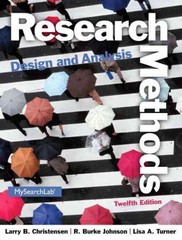Question
1.C = 0.8(Y - T) Y = 120; T = 20%. What happens if T increases to 25%? A C falls to 72. B C
1.C = 0.8(Y - T) Y = 120; T = 20%.
What happens if T increases to 25%?
A C falls to 72.
B C = 96.
C C falls to 76.8.
D Nothing, the increase in T is offset by transfer payments.
2. What causes "crowding out" of investment?
A. Increase in government purchases and tax cuts.
B. Decrease in government purchases and tax increases.
C. An overregulated market.
D. Technological Innovations and investment tax credits.
3. At equilibrium in the closed economy model, which variable adjusts to equate aggregate demand with aggregate supply?
A. Consumption
B.Investment.
C. Real Interest Rate.
D. None of the above.
4. What amount of capital do firms decide to purchase?
A. Whatever amount produces as much output as possible.
B. Whatever amount that equates the marginal product to the real rental price.
C. Whatever amount ensures that each unit of labor has a of capital
D. Whatever amount maximizes revenue
5. W and w represents what? R and r represents what?
A. Rental of price
B. Rental of capital
C. Real rental price of capital and rental price of capital, respectively.
D. Rental price of capital and real rental price of capital,
respectively.
6. What can we extrapolate from the intersection of the two curves in the following graph?
A. The real wage
B. The quantity demanded of labor.
C.
The real wage and the quantity of labor.
D. The quantity supplied of capital.
7. The price of labor is_____; cost of labor is_____; benefit of labor to firms is______:
The price of capital is _; the cost of
capital is __; benefit of capital to firm is _:
A.Wages; W*L; MPL.
B. Investment; R*K; MPK.
C. Rental Rate; R*K; MPK.
D. Depreciation; Rental Rate; Investment.
8. Refer to the following equation:
C = 0.8(Y - T) Y = 120; T = 20%.
If the MPC falls by 0.3, what is the result?
A.C falls to 28.8.
B. C falls to 48.
C. C falls to 84.
D. C falls but we cannot determine by how much.
9. If MPC = 0.7 and taxes decrease by 50, what happens to savings? How does the mechanism work?
A. Savings fall by 35; the added disposable income encourages people to overspend.
B. Savings increase by 35; the added disposable income encourages
people to save.
C. Savings increase to 35; the government makes the tax cut back through consumption taxes.
D. Savings fall; the tax cut increases consumption by 35 and savings falls by the same amount.
10. Is this a shift or movement? Of what curve? What would cause it?
A. Shift, Demand Curve for Loanable Funds, technological innovation.
B. Movement, Demand Curve for Loanable Funds, increase in
government purchases.
C. Shift, Investment Curve, repeal of an investment tax credit.
D. Movement, Supply Curve of Loanable Funds, decrease in government
purchases.
11. From the following equation, derive the equilibrium demand for labor and real wage:
Max Profit = PY - WL - RK
s.to. Y = AK^L^(1-)
A. (1-)A(K/L)^ = W/P
B. A(L/K)^1- = W/P
C. A(L/K)^1- = R/P
D. (1-)A(K/L)^ = R/P
12. In the loanable funds market, which equation represents equilibrium?
A. Y - C(Y-T) - G = I(r)
B. Y - T - C = T - G
C. S = I(r)
D. A and C.
13. Why can we interpret the real interest rate (r) as the opportunity cost of using one's own funds?
A. Because the funds can be combined with borrowed funds, of which r is the cost.
B. Because the funds used will no longer earn interest.
C. We cannot - using one's own funds does not have an opportunity cost.
D. We cannot - r is only the cost of borrowed funds.
14. Marginal Product of Labor can be interpreted as:
A. At equilibrium, the real wage.
B. The demand for labor.
C. The additional output produced from one extra unit of labor.
D. All of the above
15. What would produce the following change?
a
A. The implementation of an investment tax credit.
B. An increase in taxes.
C. A decrease in government spending.
D. An increase in government spending.
Step by Step Solution
There are 3 Steps involved in it
Step: 1

Get Instant Access to Expert-Tailored Solutions
See step-by-step solutions with expert insights and AI powered tools for academic success
Step: 2

Step: 3

Ace Your Homework with AI
Get the answers you need in no time with our AI-driven, step-by-step assistance
Get Started


